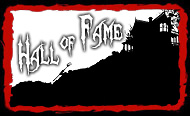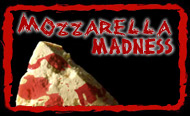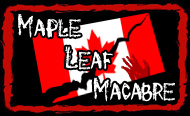
John Carpenter Live Retrospective
Date: June 18th, 2016
Venue: Orpheum Theater, Los Angeles
Reviewed by: Brett Gallman (@brettgallman)
It’s been a paradoxical decade-plus for fans of John Carpenter. While our legion has grown in number thanks to more and more people finally coming to recognize his genius (and this is to say nothing of an entirely new generation that’s been introduced to his work), I’d be lying if I said his output during this time has been completely satisfactory. Not that he owes us a damn thing, but, for a while there, it looked like he was going to let a couple of lukewarm Masters of Horror episodes and The Ward serve as an uneventful coda to an incredible career. Having more than sufficiently earned it, Carpenter seemed content to retreat to a world of comic books, video games, and basketball despite our wishes for just one more burst of genius.
Imagine our surprise when Carpenter announced that he’d turned his focus towards music: not only had he and his son Cody recorded all-new musical tracks, but they’d be released as Lost Themes, so named because, as is it turns out, every single one of them sound like they could be the score to an honest-to-god vintage John Carpenter movie. If that weren’t enough, follow-up album Lost Themes II confirmed that Carpenter has tapped into a rich, deep musical well for this unexpected late-career turn. He may not be directing any films, but he’s at least providing an incredible tapestry onto which we can project our fantasies of would-be John Carpenter movies. With the right track playing in the background, a routine trip to the store can feel like a sequel to Escape from New York.
But what’s more, all of this confirms that Carpenter still has it. This would be true even if he hadn’t decided to launch a live retrospective tour where he’d be playing the themes from his seminal films. Given his reclusive reputation from the past few years, this was perhaps the last thing any of us could have ever expected, yet it’s definitely a thing that’s happening. Even after witnessing it, I’m still not quite sure I believe it myself: I never thought in a million years that I’d share the same room with John Carpenter, much less watch him perform his own film scores in person.
Somehow, though, fate decided to give me a break: I was already planning to head to Los Angeles for a week this summer, and when Carpenter’s performance at the Orpheum Theater coincided with that very week, it felt like one of those lucid moments of destiny. One of the first (if not the first) directors that made me realize that filmmaking is an art would be performing live within shouting distance of my hotel—not that distance would have meant a fucking thing in this case, but the close proximity was appreciated considering the awful L.A. traffic.
Oddly enough, the journey didn’t really start on the night of the performance; appropriately, the Nuart happened to be screening They Live at midnight the night before. It would be my first classic Carpenter movie on the big screen, and, if I’m being honest, I never thought this would be the movie to hold that distinction. As recently as a decade ago, I might have considered it to be minor Carpenter—I always enjoyed it but didn’t consider it to be in league with his other 70s and 80s movies. Revisiting it last year in the wake of Roddy Piper’s death was eye-opening: somehow, even I underestimated just how prescient and powerful this movie is.
It turns out that even we die-hards sometimes have to learn what so many others have done during the past thirty years: that Carpenter is a severely underappreciated talent. He’s a director who rarely got his due even in his prime, and it’s taken decades for many folks to catch up. Hell, some are still catching up. I fully expect They Live to be as revered as his other work, and this is to say nothing of In the Mouth of Madness, another film that’s ripe for rediscovery and reappraisal.
I’ll leave that for another time, though I do want to focus on a brief moment at the end of They Live, where Carpenter takes an obvious swipe at Siskel and Ebert, here re-imagined as a pair of alien film critics bemoaning the outlandish violence of directors like Carpenter and George Romero. What was a not-so-subtle jab in 1988 became a stark reminder in 2016—this was Carpenter’s reputation towards the tail-end of the 80s: a guy who made disreputable horror movies that made critics squirm on their high horses.
It was with this in mind that I couldn’t help but smile upon laying eyes on the Orpheum Theater. One of Los Angeles’s oldest, most revered movie houses, a place that once housed the likes of The Marx Brothers, Judy Garland, and Will Rogers. Decades later, it remains a gilded altar of Golden Age Hollywood, adorned with a classic marquee and an ornate architecture that sprawls from the lobby to the auditorium’s high, golden ceiling. A velvet curtain conceals a stage that has hosted Hollywood royalty—and tonight it played host to a director who was all but written off by the establishment.
What’s more, the sold-out auditorium itself would stuffed by Carpenter’s devotees: here you had this elegant, baroque theater packed floor-to-ceiling by a bunch of freaks and geeks sporting horror movie t-shirts. From the moment I walked up to the street and was complimented on my Silver Shamrock tee, I knew I was among my people, a group of fellow fans who simply wanted a chance to pay tribute to a man who fundamentally affected so many of our lives. I can say for sure that I would not be who I am today without Halloween, which is, quite frankly, not saying much considering the room featured people who have pursued careers because of John Carpenter.
But within this context, we were all pretty much the same: whether you were someone like me—just a dude who happens to have found a small online niche to talk about horror movies—or someone who was inspired to actually move to Los Angeles and work in film, you were at the Orpheum to show appreciation for a filmmaker who never seemed to get his due. These shows may be officially dubbed a “John Carpenter Live Retrospective,” but it practically doubles as an appreciation tour, something that became obvious the moment Carpenter strolled onto the stage and earned a standing ovation without having played a note. Hell, he hadn’t even settled behind the keyboard, and he had us all whooping and hollering—and totally in the palm of his hands.
The only moment more deafening came a few seconds later, when the six-piece band launched into those familiar bass-and-synth riffs from the Escape from New York theme. They were a little spiced up and more electric thanks to the two guitarists’ contributions, but they’re familiar all the same. Who knew that one of Carpenter’s finest tracks would also double as a killer concert opener?
From there, he would move through the rest of his filmography, hitting all the expected highlights along the way. Even the main theme from The Thing—which he did not compose—made the cut as a tribute to Ennio Morricone. As icing on the cake, each score was accompanied by a montage from the actual films, which provided a potent reminder that John Carpenter’s movies are pure cinema. Granted, the familiarity with the films helps, but even these sparse images and the score so perfectly capture the essence of what makes them so great: the glorious widescreen compositions, the indelible characters, the unforgettable imagery.
Having the music pulse through the room somehow managed to heighten just how incredible Carpenter’s work is. I didn’t expect to be so transfixed by the experience: I had goosebumps from the opening drumbeat that didn’t subside until after the concert was finished about 105 minutes later (how appropriate that even Carpenter’s concerts are economically paced, brisk affairs). So many of these familiar images—be it a sneering Snake Plissken walking away in defiance or Michael Myers ruthlessly stalking Laurie Strode—took on a new, immediate life in this environment. With each new theme came an overwhelming feeling of wanting to be lost in these worlds again. Perhaps the best thing I can say about this concert is that it made me want to watch every single John Carpenter movie again, especially In the Mouth of Madness, which felt like his take on a weird, gonzo Eurohorror effort in this context.
Of course, none of this is really about me or anyone else in the audience—obviously, this was Carpenter’s show, and he commanded the stage like a goddamned rock star. “I’m John Carpenter,” he announced, as if he needed an introduction to this crowd. It seemed less like an introduction and more like a declaration, though: here he as at 68 years old, his long grey hair tucked back into a ponytail, taking a stage no one expected him to grace. He is the same John Carpenter that has been both underappreciated and revered, dismissed and exalted. On this night, though, it was a chance to exult in the latter—it was a celebration or a victory lap for an unbelievable career, and nobody seemed to be having more fun than Carpenter himself, who is often portrayed as a cranky, who-gives-a-shit recluse. Not only did he actually play to the audience, he danced.
Occasionally, he’d take a moment to introduce a track from the Lost Themes albums or briefly discuss the films themselves. Most pointedly, he reveled in the fact that he often directed horror movies, going so far as to boldly proclaim that he loves horror and that “horror will never die” right before ripping into the Halloween theme. It was a sublime moment, one that almost seemed to be aimed right at the hearts of those who dismissed him. Even though Halloween is arguably his most well-received work, its theme here took on the tenor of an anthem for horror in general: what once scored the little-slasher-movie-that-could had been amplified to epic proportions, uniting the audience in a shared moment of horror bliss. In the middle of it all was Carpenter himself doing a shuffle and pumping his fists.
I hesitate to call it a moment of redemption because he’s never had anything for which to atone; instead, it felt more like vindication. For 105 minutes, both Carpenter and his flock shared together what all of us have known for years: that this is the work of a vital, transformative filmmaker. Where they once sounded through tinny television speakers, these scores now roared and reverberated through our bones and throughout this hallowed auditorium, as if it were scoring some kind of revival. In the end, maybe this should be considered a resurrection. It only seems fitting that the man who gave us Michael Myers would eventually find a way to rise again. comments powered by Disqus Ratings:

Average members rating (out of 10) : Not yet rated
Votes : 0
Votes : 0







